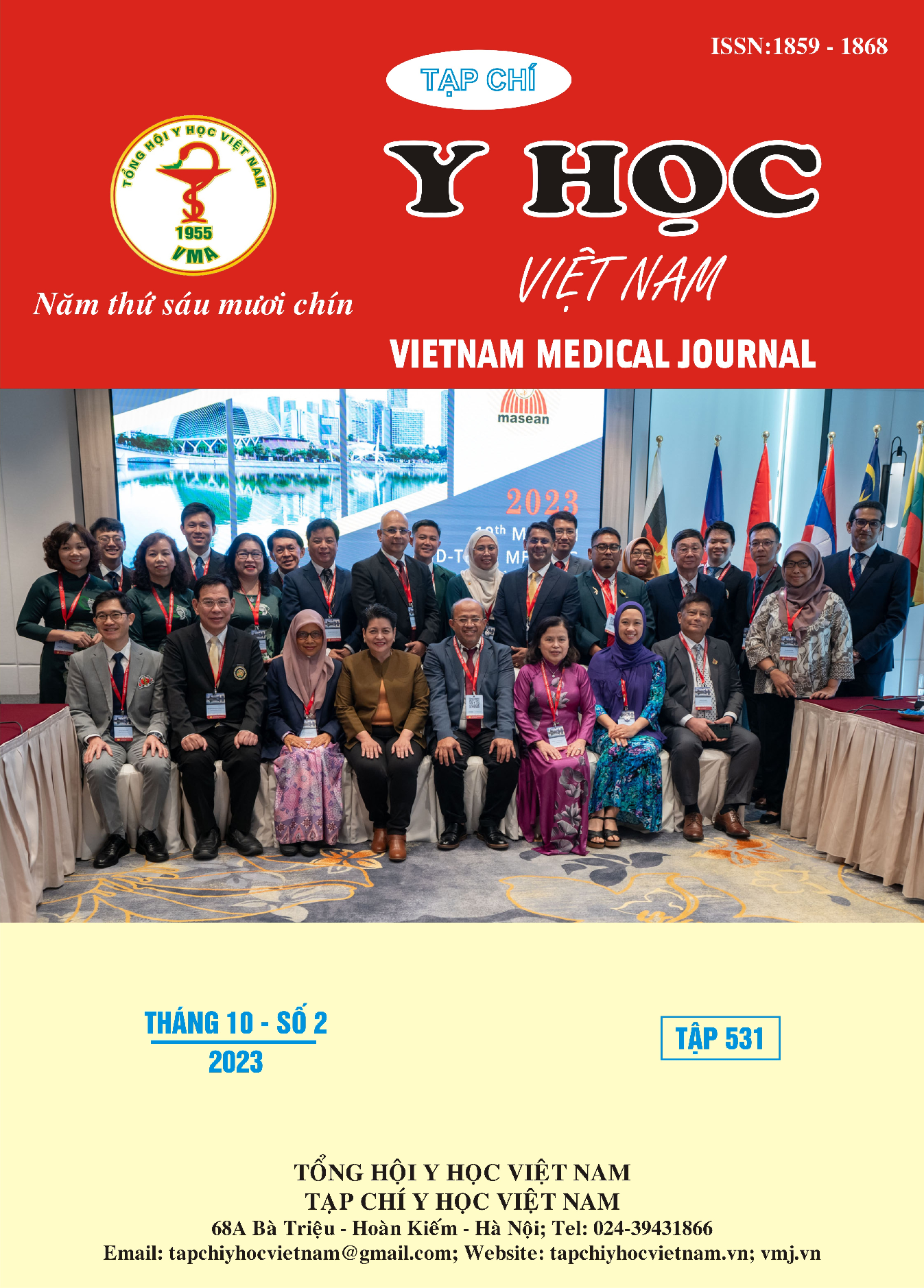THE RELATIONSHIP BETWEEN OF MEDICAL AND REPRODUCTIVE FACTORS TO POSTPARTUM DEPRESSION IN MOTHES OF PRETERM INFANTS AT SOME OBSTETRICS AND GYNECOLOGY HOSPITALS IN HANOI
Main Article Content
Abstract
Objectives: To evaluate related factors to depression among preterm birth mothers at National hospital of Obstetrics and Gyneacology and at Hanoi hospital of Obstetrics and Gyneacology. Subjects and methods: This is a cross-sectional study of 568 postpartum preterm birth mothers at the hospitals from February 2023 to June 2023. The Edinburgh Postnatal Depression Scale (EPDS) was utilized to assess postpartum depression, with a score of 10 or higher indicating depression. Results: Health and reproductive factors that increase the risk of depression in mothers after preterm birth include: experienced psychological events in the previous 12 months (OR=5.7; 95%CI=3.6-9.2), suicidal thoughts (OR=4.1; 95%CI=1.7-9.8), birth weighing under 1000g (OR=4.1; 95%CI=2.1-7.8), psychological stress during pregnancy (OR=4.1; 95%CI=2.8-6.1), worry about the child's health, care and treatment (OR=3.0; 95%CI=1.8-4.9), depression during pregnancy (OR=2.8; 95%CI=1.4-6.0), weak/very weak physical health (OR=2.1; 95%CI=1.1-3.9), giving birth before 34 weeks (OR=1.9; 95%CI=1.3-2.7), history of obstetric complications (OR=1.8; 95%CI=1.2-2.7), the child is not with the mother (OR=1.5; 95%CI=1.1- 2.2). Conclusion: Mothers with health and psychological issues and infants born with poor health are at a higher risk of developing postpartum depression. Therefore, medical and psychological interventions should be implemented for the those subjects.
Article Details
Keywords
Postpartum depression, influencing factors, mothers of preterm infants.
References
2. Trần Thơ Nhị. Thực trạng trầm cảm và hành vi tìm kiếm sự hỗ trợ trợ phụ nữ mang thai, sau sinh tại huyện Đông Anh, Hà Nội. Luận án Tiến sỹ Y tế công cộng. Đại học Y Hà Nội, 2018.
3. Cox J.L., Holden J., and Henshaw C. Perinatal mental health, the Edinburgh Postnatal Depression Scale (EPDS) Manual, RCPsych Publications: 2014.
4. Dennis C-L, Heaman M, Vigod S. Epidemiology of Postpartum Depressive Symptoms among Canadian Women: Regional and National Results from a Cross-Sectional Survey. Can J Psychiatry 2012; 57:537–46.
5. Alasoom LI, Koura MR. Predictors of postpartum depression in the eastern province capital of saudi arabia. J Fam Med Prim Care 2014;3:146–50.
6. Agoub M, Moussaoui D, Battas O. Prevalence of postpartum depression in a Moroccan sample. Arch Womens Ment Health 2005;8:37–43.
7. Bener A, Burgut FT, Ghuloum S, Sheikh J. A study of postpartum depression in a fast developing country: prevalence and related factors. Int J Psychiatry Med 2012;43:325–37.
8. Alami KM, Kadri N, Berrada S. Prevalence and psychosocial correlates of depressed mood during pregnancy and after childbirth in a Moroccan sample. Arch Womens Ment Health 2006;9:343–6.
9. Bener A, Bener A. Psychological distress among postpartum mothers of preterm infants and associated factors: a neglected public health problem. Braz J Psychiatry 2013;35:231–6.
10. Saleh E-S, El-Bahei W, Del El-Hadidy MA, Zayed A. Predictors of postpartum depression in a sample of Egyptian women. Neuropsychiatr Dis Treat 2013;9:15–24.


